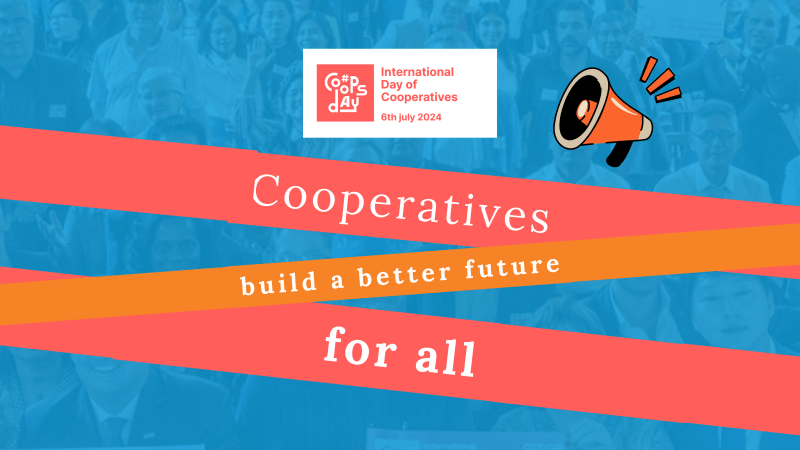On July 6, 2024, cooperatives worldwide will celebrate the International Day of Cooperatives under the theme “Cooperatives Building a Better Future for All.” This special day highlights the crucial role cooperatives play in creating a sustainable future and advancing the Sustainable Development Goals (SDGs).
The 2024 UN Summit of the Future
This year’s theme aligns with the upcoming UN Summit of the Future, which focuses on “Multilateral solutions for a better tomorrow.” Cooperatives will showcase their:
- Current and historical contributions to sustainability
- Efforts to implement the SDGs by 2030
- High standards for inclusive and sustainable growth
- Role as environmental stewards and climate change fighters
Cooperative Values in Action
Democratic Governance
Cooperatives set an example for peace and stability through their democratic structure. They bring people from diverse backgrounds together on equal terms, fostering understanding and respect.
Shared Ownership
The shared ownership model of cooperatives promotes economic equality and fair wealth distribution. This approach contrasts with traditional business models that often lead to wealth concentration.
Building Momentum
The 2024 celebration builds on recent achievements:
- The 2023 UN Secretary-General Report on Cooperatives in Social Development recognized cooperatives’ role in promoting economic and social development for all, including marginalized groups.
- The UN declared 2025 as the International Year of Cooperatives, providing further opportunities to showcase the cooperative model’s benefits.
Background: The Cooperative Movement
What Are Cooperatives?
Cooperatives are associations and enterprises through which citizens can:
- Improve their lives
- Contribute to their community’s advancement
- Participate in national and international affairs
Key Principles
Open Membership
Cooperatives operate on an open membership model, which:
- Provides access to wealth creation
- Helps eliminate poverty
- Allows equitable and democratic control of capital
People-Centered Approach
Unlike traditional businesses, cooperatives are:
- People-centred, not capital-centred
- Focused on fair wealth distribution
- Committed to preventing excessive capital concentration
Community Focus
Cooperatives demonstrate their commitment to sustainable community development through:
- Support for local activities
- Sourcing supplies locally to benefit the local economy
- Considering community impact in decision-making
Global Impact
While rooted in local communities, cooperatives aim to bring their economic and social benefits to people worldwide. They provide an alternative model of globalization based on:
- Shared values
- Reduced inequality
- Sustainable practices
Cooperative Movement Characteristics
The cooperative movement is characterized by:
- Democratic structure: Members have an equal say in decision-making.
- Local autonomy: Each cooperative is independent and self-governing.
- International integration: Cooperatives work together across borders.
- Self-help and responsibility: Members rely on their own efforts to achieve goals.
- Holistic objectives: Cooperatives address economic, social, and environmental issues.
Cooperatives’ Role in Addressing Global Challenges
Cooperatives contribute to solving major global issues:
- Poverty reduction: By creating economic opportunities for members
- Employment: Providing productive jobs and income-generating activities
- Social integration: Bringing people together and fostering community ties.




 World Peace and Understanding Day 2026: ...
World Peace and Understanding Day 2026: ...
 International Mother Language Day 2026: ...
International Mother Language Day 2026: ...
 Arunachal Pradesh Foundation Day 2026: P...
Arunachal Pradesh Foundation Day 2026: P...








